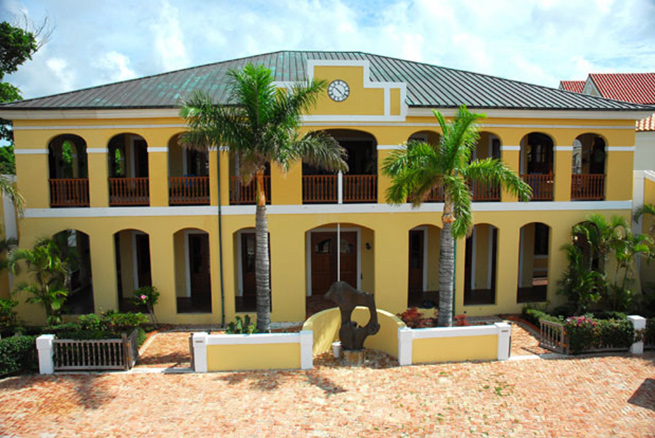
Grand Bahama Island History; credit The Bahamas
Grand Bahama Island History
People lived in The Islands Of The Bahamas as early as 300 to 400 AD. In the 10th century, Lucayan Indians — a subgroup of the Arawaks – settled throughout The Islands Of The Bahamas around 900-1500 A.D. The Lucayans had left the Lower Caribbean to avoid their enemies, the Carib Indians, who were known to be fierce warriors and cannibals. A peaceful group, the Lucayans were farmers who lived in thatch huts, used stone tools and made their own pottery. They were politically, socially and religiously advanced.
When Christopher Columbus arrived in 1492 on San Salvador, there were about 40,000 Lucayans living in The Bahamas. Taking advantage of the people’s gentle nature, he enslaved them three years later and shipped them off to Hispaniola (Dominican Republic) to work in the Spanish mines. Slavery, disease and other hardships wiped out the entire tribe within 25 years of Columbus’ arrival.
In 1648, a group of dissident English Puritans arrived here in their quest for religious freedom. Although the adventurers gave Eleuthera its name, the island didn’t give much back, and the settlers experienced food shortages, a lack of proper supplies and internal strife that split the group into separate communities along Governor’s Harbour and Preacher’s Cave. To better guard against marauding Spanish troops in the area, another settlement was then established on the nearby—and more easily defended—Harbour Island.
In the late 1600s to the early 1700s, The Bahamas made an ideal home base for pirates and privateers. The numerous islands and islets with their complex shoals and channels provided excellent hiding places for pirates. And since The Bahamas were close to well-travelled shipping lanes, it gave them plenty of opportunities to plunder merchant ships. Slow-moving merchant ships, especially Spanish galleons weighed down with riches plundered from Central and South America, were easy prey. After removing the stolen cargo, they hid it in the numerous limestone caverns dotting the islands of The Bahamas. Sir Francis Drake and Blackbeard used The Bahamas as their port at one time or another.
With its shallow waters and over 700 islands, The Islands Of The Bahamas also made a great place for Pirates to hide treasures. In addition, many ships laden with gold and silver sank off the coasts of the islands. Such tales of treasure add mystique to The Bahamas and attract treasure hunters to this day.
In 1783, the former British Loyalists, assisted by the South Carolina militia, took up arms and forced the retreat of Spanish forces from the entire region without a shot being fired.
The Hotel and Steam Ship Service Act of 1898 provided government support for the construction of hotels and subsidised steamship service to the country. This gave birth to tourism in The Bahamas, with Nassau being officially promoted as a fashionable winter season resort.
In the 1920s, Prohibition attracted wealthy American tourists to the islands to indulge in food, spirits, lodging and other items. Relaxed banking laws also triggered a banking boomed pumping money into the economy for new hotels, warehouses, bars, distilleries and wharves. After Prohibition, The Bahamas went into an economic slump that lasted until World War II, when it served as an air and sea base in the Atlantic, bringing jobs to many.
Then in 1961, when Cuba casinos and resorts closed to American tourists, The Bahamas’ fortune took off as it leveraged its close proximity to Florida. The Bahamian government dredged Nassau’s harbour to accommodate more cruise ships and built a bridge connecting Nassau to Paradise Island. The casinos boomed.
In 1964, Great Britain granted The Islands Of The Bahamas limited self-government, and in 1969 the colony of The Bahamas became a Commonwealth. The Bahamas became the free and sovereign Commonwealth of The Bahamas on July 10, 1973, ending 325 years of British rule, though it remains part of the Commonwealth. July 10th is celebrated today as Bahamian Independence Day.
